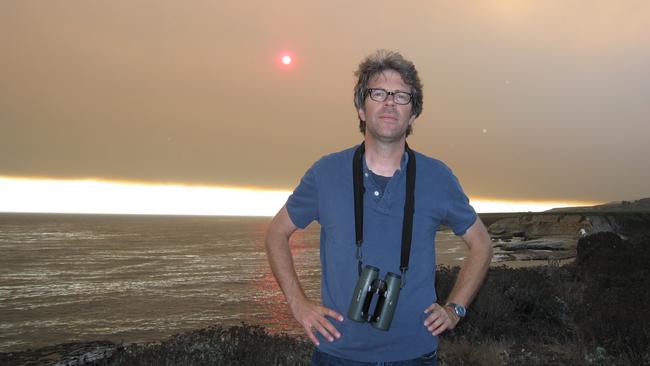Jonathan Franzen straddles the thin line between art and artist
Jonathan Franzen is an example of the challenge we sometime face in separating art from the views of the artist.

When Ezra Pound won the inaugural Bollingen Prize for Poetry in 1949, for The Pisan Cantos, his address was c/o St Elizabeth’s Hospital for the insane in Washington, DC. The American poet was a certified lunatic, a designation that saw him avoid a treason trial for his pro-fascist radio broadcasts during World War II.
Now, I would not make any direct comparison between Pound and Jonathan Franzen, but it does strike me the American novelist is a contemporary example of the challenge we sometime face to separate the art from the life and views of the artist. Tegan Bennett Daylight makes this point in her review this week of Franzen’s new novel Purity. I’m attracted to her observation that “A good reader knows when an author is in control of dark and difficult feelings. Perhaps Franzen’s hand is not always as steady as we would like it to be. But these are novels, not policy documents.’’ Others will argue the art and the life must be considered together, as poet Robert Hillyer did in a piece, “Treason’s Strange Fruit’’, for the Saturday Review in the wake of Pound’s prize. “Art,’’ he argued, “cannot be separated from life and attain true greatness.’’
REVIEW: Jonathan Franzen’s art at its finest
I have interviewed Franzen just once, by phone about five years ago to talk about his then-new novel Freedom and his looming visit to Australia, where he was keen to do some birdwatching. I found him easy to talk to. I met him briefly during his trip and thought him more awkward in person, shy perhaps, but still friendly. I admit I was a little taken aback, in the Melbourne Writers Festival green room one morning, when he was introduced to a colleague who was about to interview him on stage … and promptly fell asleep. Jet lag? Anyway, he rubs some people the wrong way. If you’d like to see him almost in the flesh, I recommend going to Emma Brockes’s interview with him on The Guardian website, where there’s a short video of the author answering simple but difficult questions such as “When were you happiest?” and “What is the single trait you most deplore about yourself?” His answers are gentle and funny.
The September issue of Australian Book Review, out now, is devoted to fiction and includes a fascinating survey of local authors and critics on the “missing” novels they would most like to see return to the public eye. Many choose Australian works, some more dormant than others (Anna Funder makes the case for Christina Stead’s The Man Who Loved Children; Sonya Hartnett reminisces about Lee Harding’s 1979 young adult novel Displaced Person). Others look beyond our shores. Our own Geordie Williamson extols the writing of British literary exile James Hamilton-Paterson. But it is novelist Andrea Goldsmith who warms my heart with a stirring plea for the great W. Somerset Maugham, once the highest paid author in the world, to be brought in from the cold. She rightly identifies the masterpieces The Razor’s Edge and Of Human Bondage (“perhaps the best novel of obsessive love ever written”) and singles out that little gem Cakes and Ale. I’m aware of the fact Edmund Wilson dismissed Willie as “a half-trashy novelist, who writes badly, but is patronised by half-serious readers, who do not care much about writing”, but I respectfully disagree. Goldsmith concludes that Maugham “merits the metre of shelf in my library”. He occupies similar real estate in mine, though Graham Greene has the penthouse.
At last. Helen Garner’s account of the Robert Farquharson trials, This House of Grief, has won the Ned Kelly Award for best true crime book, as tipped here a fortnight ago. It’s a deserved and overdue recognition of a fine book. The other Neds went to Candice Fox (best crime fiction for Eden), Jock Serong (best debut crime fiction for Quota) and Andrea Gillum (SD Harvey Short Story Award for Short Term People).



To join the conversation, please log in. Don't have an account? Register
Join the conversation, you are commenting as Logout